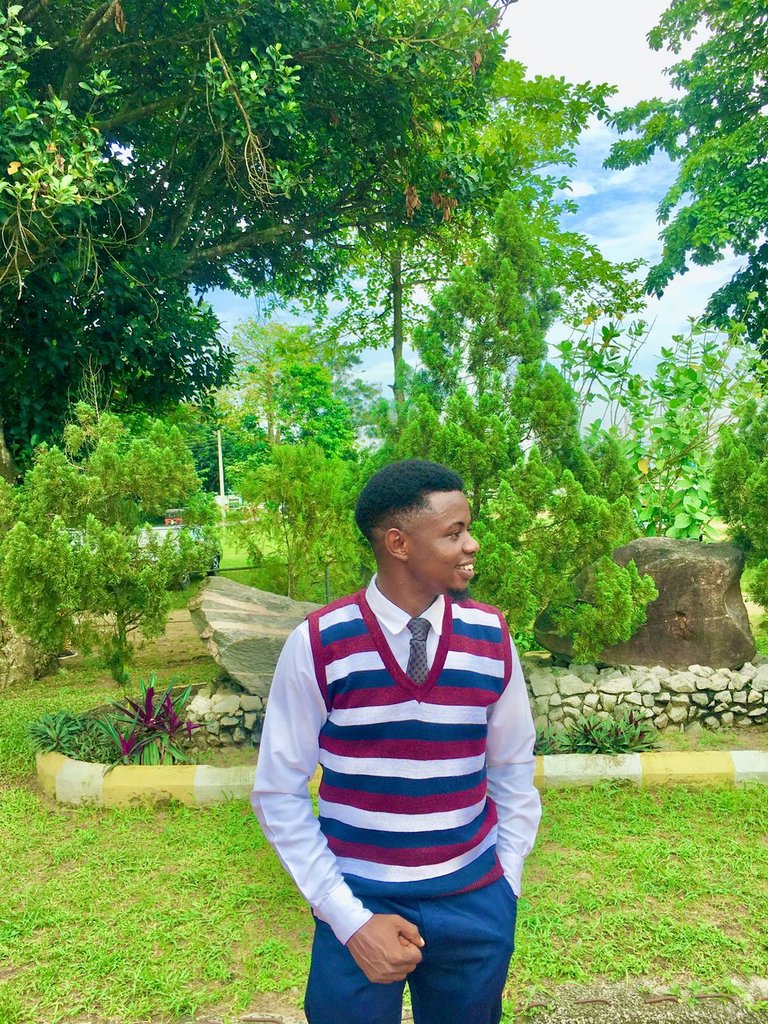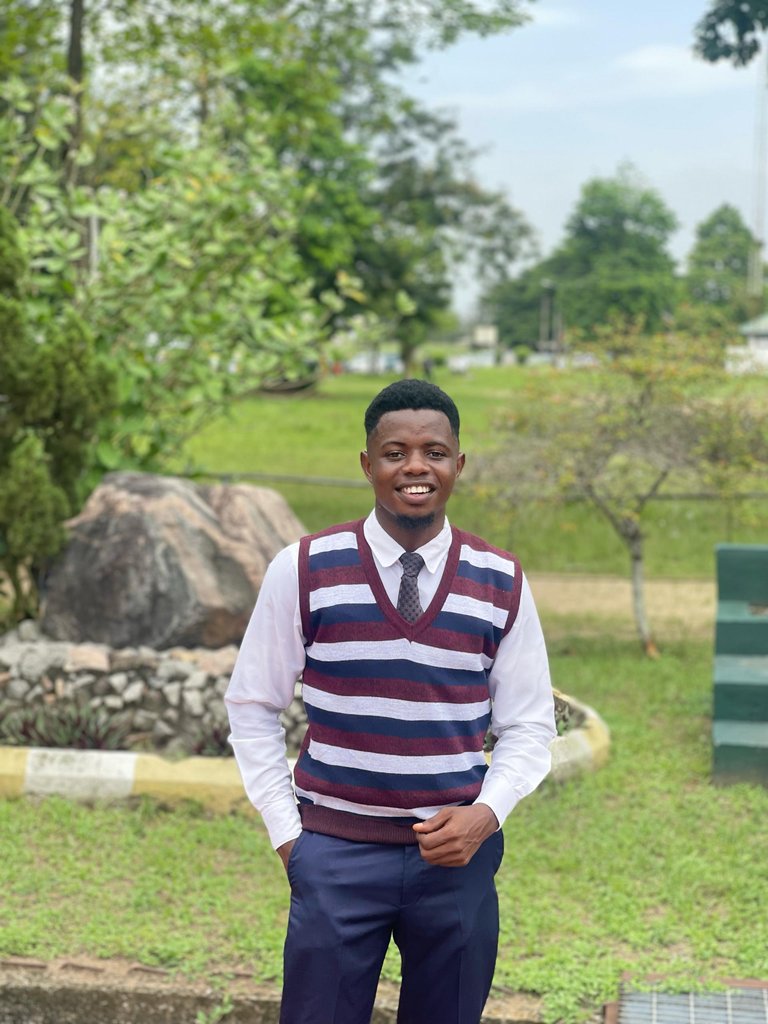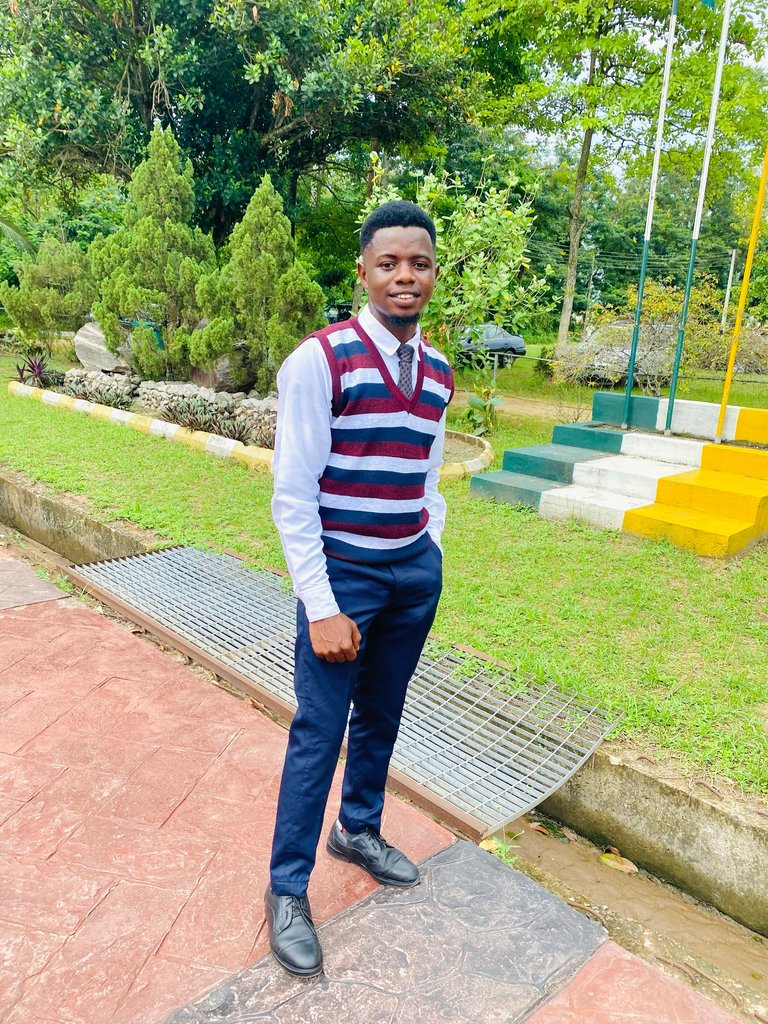How the Sound of Music Made Me Fall in Love with Afrobeats (ENG / ESP) Cómo el Sonido de la Música Me Hizo Enamorarme del Afrobeat
I can't tell you the exact moment I first heard Afrobeats, but I can never forget how it made me feel. It wasn’t just the drums or the catchy lyrics. It was something much deeper. Something that touched the soul. I didn’t fully understand the rhythm at first, but somehow my body did. Before I even had time to think, I was already moving, nodding my head, tapping my feet. That was when I realized that this music was not just something to hear. It was something you experience.
Growing up in Akwa Ibom, music was always part of my life. Whether it was the voices of the church choir during Sunday service or the highlife music playing at wedding receptions, there was always a rhythm around me. My mum had her gospel collection she played every Sunday morning, while my dad liked the old school stuff. He would play Onyeka Onwenu, Osita Osadebe, and sometimes even Celestine Ukwu. At the time, I didn’t know anything about genres or music styles. I just knew what made me feel something.
Then one December, everything changed. My cousin came back from Lagos and brought his playlist with him. He was blasting Wizkid, Burna Boy, Davido, Runtown, and Tekno from his small Bluetooth speaker. Our compound turned into a mini party that Christmas. We played “Ojuelegba,” “If,” and “Ye” over and over again. Something shifted in me. The beats were new but somehow felt familiar. The melodies were rich and the instruments were alive. It was music that sounded like home but also sounded like the world.
That was the beginning of my journey into Afrobeats. I started listening closely. I began to pay attention to the layers in the music. The soft drums, the talking drums, the sweet basslines, and those signature log drum sounds. They all came together like a heartbeat. I also loved how the artists used pidgin, street slang, and everyday language to tell real stories. You could hear joy, pain, hope, and hustle in just one verse.
Before long, I started trying to create my own lyrics. I wasn’t chasing fame or anything like that. I just wanted to express myself. And that’s what Afrobeats gave me. Freedom to speak my truth. Freedom to be me. You don’t have to sound like anybody else in this style of music. You just have to be real.
Afrobeats became more than a sound to me. It became an attitude. A lifestyle. It gave me confidence in my identity. Even when the songs are playful, there’s always some truth in there. It can make you dance, laugh, cry, or reflect, depending on the moment. That’s powerful.
What really makes me proud is seeing people in other parts of the world dancing to Afrobeats. People who don't even speak our language still feel the vibe. That says a lot. It means our music speaks a global language. It means that what started from African soil now moves people everywhere.
For me, Afrobeats helped me fall in love not just with music but with who I am. It reminded me that where I come from is not something to hide, but something to celebrate. I carry that rhythm with me every day. And no matter where I go, Afrobeats will always feel like home.



Cómo el Sonido de la Música Me Hizo Enamorarme del Afrobeat
No puedo decirte exactamente cuándo escuché Afrobeat por primera vez, pero nunca podré olvidar cómo me hizo sentir. No era solo el ritmo ni las letras pegajosas. Era algo más profundo. Algo que tocaba el alma. Al principio no entendía bien el ritmo, pero mi cuerpo sí. Antes de que pudiera pensarlo, ya estaba moviéndome, asintiendo con la cabeza, sintiendo la música en mis huesos. Ahí supe que esta música no es solo para escuchar. Es para vivirla.
Crecí en Akwa Ibom y la música siempre estuvo presente. En la iglesia, en las celebraciones, en la radio de los vecinos. Los domingos por la mañana mi mamá ponía música gospel mientras cocinaba, y mi papá prefería los clásicos de Nigeria, como Onyeka Onwenu o Osita Osadebe. En ese entonces no entendía de géneros ni estilos. Solo sabía lo que me hacía sentir algo.
Pero un diciembre todo cambió. Un primo mío volvió de Lagos con una lista de reproducción llena de Wizkid, Burna Boy, Davido, Runtown y Tekno. Tenía un altavoz Bluetooth y lo usaba todo el día. Ese diciembre nuestra casa se convirtió en una pequeña fiesta. Repetíamos “Ojuelegba”, “If” y “Ye” como si fueran himnos. Algo dentro de mí cambió. Los sonidos eran nuevos pero también se sentían como casa. Las melodías eran ricas y los instrumentos hablaban. Era música que sonaba como mi gente, pero también como el mundo.
Ahí empezó mi amor por el Afrobeat. Empecé a escuchar de verdad. A notar los detalles. La percusión suave, los tambores hablantes, los bajos, los sonidos tribales. Todo encajaba como si fuera un solo latido. También me encantaba cómo los artistas usaban el pidgin, las expresiones callejeras, el lenguaje cotidiano para contar historias reales. En un solo verso podías sentir alegría, dolor, esperanza y lucha.
Después de un tiempo, comencé a escribir
Truly its amazing how afrobeats are now going intercontinental.
Its something to be proud of, thanks for sharing.